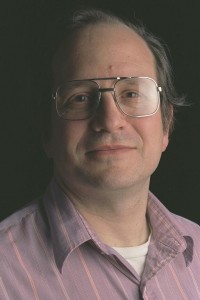evan misshula
Should We Fear Intelligent Machines?
On 21, Mar 2015 | In Uncategorized | By evan misshula
Please join the GC Digital Initiatives, the GC Digital Fellows, the PhD program in Computer Science and the CUNY Digital Humanities Initiative in welcoming Dr. Gerald J Sussman, who will present on the problems created by intelligent agents whose governing are purposefully obscured but whose actions are designed to benefit or harm humans.
This event will take place Tuesday, March 24th, at 6pm in the Mina Rees Library Concourse (C.197) at the Graduate Center, CUNY. This event will be live tweeted (follow @cunydhi and use #cunydhi).
Recently there has been a new round of concern about the possibility that Artificial Intelligence (AI) could get out of control and become an existential threat to humanity.” With the recent explosive application of AI technology we are faced with a problem: a technology so powerful and pervasive whose benefits accrue to private entities (Microsoft, Oracle, Google, facebook, Cigna, FICO, JP Morgan and Goldman Sachs) yet with both unexamined and unregulated consequences for private citizens.
How can we ensure that applications of this technology are constrained to provide benefits without excessive risk of harm? This is primarily a social, political, and economic issue, there are also significant technical challenges that we should address.
Sussman argues that intelligent agents must be able to explain their decisions and actions with stories that can be understood by other intelligent agents, including humans. Sussman goes further, adding that these programs must be capable of being held accountable for those activities in adversarial proceedings. For citizens to have confidence in these measures the software base for such agents must be open and free to be examined by all and modified, if necessary, to enhance good behaviors and to ameliorate harmful behaviors.
Biographical sketch of Gerald Jay Sussman
Gerald Jay Sussman is the Panasonic (formerly Matsushita) Professor of Electrical Engineering at the Massachusetts Institute of Technology. He received the S.B. and the Ph.D. degrees in mathematics from the Massachusetts Institute of Technology in 1968 and 1973, respectively. He has been involved in artificial intelligence research at M.I.T. since 1964. Sussman’s contributions to Artificial Intelligence include problem solving by debugging almost-right plans and various language structures for expressing problem-solving strategies. His work with Richard Stallman developed propagation of constraints for application to electrical circuit analysis and synthesis, and dependency-based explanation and backtracking. Sussman and his former student, Guy L. Steele Jr., invented the Scheme programming language in 1975.
Sussman pioneered the use of computational descriptions to communicate methodological ideas in teaching subjects in Electrical Circuits and in Signals and Systems. Over the past decade Sussman and Jack Wisdom worked across disciplines to develope a subject that uses computational techniques to communicate a deeper understanding of advanced Classical Mechanics. The task of formulating a method as a computer-executable program and debugging that program is a powerful exercise in the learning process. Also, once formalized procedurally, a mathematical idea becomes a tool that can be used directly to compute results. Sussman and Wisdom, with Meinhard Mayer, have produced a textbook, “Structure and Interpretation of Classical Mechanics,” to capture these novel ideas.
Sussman is a coauthor (with Hal Abelson and Julie Sussman) of the introductory computer science textbook used at MIT and many other universities. The textbook, “Structure and Interpretation of Computer Programs,” has been translated into French, German, Chinese, Polish, and Japanese. As a result of this and other contributions to computer-science education, Sussman received the ACM’s Karl Karlstrom Outstanding Educator Award in 1990, and the Amar G. Bose award for teaching in 1992.
Sussman is a fellow of the Institute of Electrical and Electronics Engineers (IEEE). He is a member of the National Academy of Engineering (NAE), a fellow of the American Association for the Advancement of Science (AAAS), a fellow of the Association for the Advancement of Artificial Intelligence (AAAI), a fellow of the Association for Computing Machinery (ACM), a fellow of the American Academy of Arts and Sciences, and a fellow of the New York Academy of Sciences (NYAS). Sussman is a founding director of the Free Software Foundation.


 Welcome to the blog of the CUNY DHI, an effort to build momentum and community around Digital Humanities practitioners at CUNY. We hope you'll join us at our upcoming events and that you'll follow this blog to hear about the latest news in the field.
Welcome to the blog of the CUNY DHI, an effort to build momentum and community around Digital Humanities practitioners at CUNY. We hope you'll join us at our upcoming events and that you'll follow this blog to hear about the latest news in the field.



Recent Comments